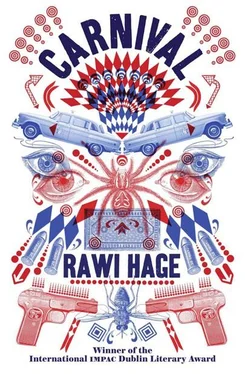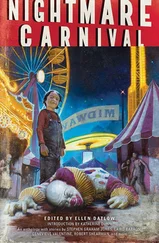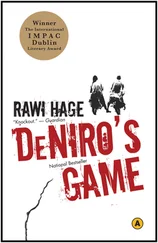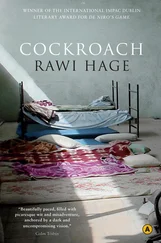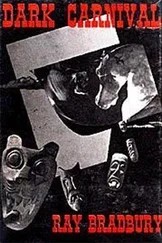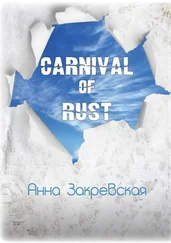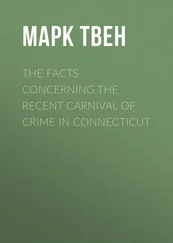I still think that you should get married and settle down before it is too late, the passenger behind me said, as I drove and watched the road and the rain, as I listened to the sound of the wipers’ monotonous swings. The same rhythm, the same dance, the same swing of the pelvis after dinner and between the news breaks and the sway of the nocturnal toothbrush, the same keys, same breakfast, and same The doorbell is ringing, darrrrling , the same dog with its monotonous tail swings to welcome you after your car engine has stopped above the same spot of oil on the ground of the same garage. We arrived at the airport. The rain had stopped and the wipers rested.
I unloaded the man’s luggage from the trunk. He paid me and we shook hands, and as he was about to turn and depart he said to me, Good luck with your solitary existence. But remember, my son, the Lord’s path is always open.
So long, I replied, may we all have one good flight before we rest among flowers and the orbits of hungry worms.
He left and I turned back towards the city and drove through the empty roads, and I rejoiced at the privilege of a ride through the falling rains.
THE DEALER CALLED my apartment. When I answered, all he said was, Tonight we are on.
So I waited for him once more. He came down wearing shades though it was late in the evening. He got in and sat in the back seat, quiet. I watched him in the mirror and waited for instructions. He waved his hand and I drove straight ahead, and when we reached the end of the street he said, Left and right and straight to the port area. He wasn’t talkative at all. But then he said, You can go home early tonight. It is just a meeting.
We arrived.
Good, he said. Park behind the container here. Then we waited and we both watched in the rearview mirror.
A big car came from behind and pulled up next to us. There were two men inside. I tried not to look. The less I know, the safer I’ll be, I thought.
Stay here, the dealer said. I’ll be back.
So I turned off the engine and opened a book to read, but the light was dim and I didn’t want to turn on the interior light. Carefulness and survival instincts made me welcome the dark. I will give it fifteen minutes, I thought, and then I will leave. It was an overcast night, there was no moon to be seen, and there was a fence between my car and the river. I don’t often listen to the radio, besides it drains the battery when the engine is not running, but some of those spiders pass their lives driving and listening to talk-show programs. With time, if they spend enough years in this land, they start complaining about foreigners just like themselves and lazy people and the government’s waste of money. And though none of these drivers pays any taxes, they start walking like big taxpayers and old men with large umbrellas who feel justified in their sense of entitlement because they fought old wars and gave half their money to the nation state. Buffoons, some of these drivers are. They like to have those voices in their heads.
Once, in Café Bolero, Number 115 stood up and grabbed the public phone in the hallway next to the bathroom and he kept dialling until he got on. The waitress turned up the volume and everyone in the café got quiet, and then the right-wing anchor, with his little-girl voice, interrupted 115, first corrected his English, and then asked him, Where you are calling from? And he followed that with: I thought you were calling from India, pal. How did we let you in here? Everyone laughed and thought it was a good joke, but I left the restaurant, sat in my car, and cried.
A light beamed from behind me. I thought it was the dealer come back to interrupt my thoughts, but then a man in a guard’s uniform knocked on my window. I could see the silhouette of his partner in my mirror, standing behind my car on the other side. I slowly rolled down the glass and made sure he could see that both my hands were on the wheel.
What are you doing here? This is private property.
Whose property? I inquired, for no reason.
It is the port authority’s property. There is a sign back there. No one is allowed in after 8 p.m.
Well, the sign must not be lit, or I would have seen it.
You are trespassing. Licence and registration, please.
I had just handed him my licence when another car pulled up. The dealer stepped out, walked towards us, and said, He is with me.
The security guard immediately handed me back my papers and the dealer got into the car. As I was about to drive away, the dealer asked me to wait. He lowered the window and called the man back. Thursday, he said. The guard nodded and turned away.
FREDAO
IN THE DAYS when I lived with Otto and Aisha, Linda would come around. And often she would bring Tammer and leave him for the night. Other times, a week or more. Tammer was a quiet boy; he accepted things and hardly complained. He seemed not to object to being around new people. When his mother left, he would just stare after her and then look away. Once I made him laugh by turning myself into a clown. I juggled a few balls and I balanced on the edge of the sofa with an umbrella in my hand. I pulled coins from his ear and sang with water in my mouth. The kid laughed and said, More.
One day Otto went looking for Linda on the streets because Tammer had a fever and was asking for his bed and for his mother. That was how Otto met Linda’s pimp, Fredao, who was from Angola and claimed to have been a child soldier with UNITA, and to have participated in the liberation of Angola from the Portuguese.
Soon after, Otto decided to talk to Fredao about helping Tammer with his school fees and books and clothes. Otto, man, Fredao said, when they were both drunk, sitting under a bridge on the banks of the town’s river, listen, the worst kind of colonization was us poor niggers who were colonized by the Portuguese. The French gave us some culture, the British some laws, but those Portuguese gave us nothing. And when the filth left our lands, they dismantled everything down to the last light bulb in the factories and the last neon light in our stores. But then the Cubans came and they were not colonizers. . I started my career, Fredao smiled, by providing women to the Cuban soldiers, and that is how I learned the pimping business. He laughed. A soldier needs guns, food, and sex no matter what, and our women were willing to give their bodies to those fighters because the Cubans installed schools for our kids, provided us with doctors for our sick, clean water, medicine. What did the European colonizers leave behind after hundreds of years of ravaging our continent and our bones? Nothing!
After Fredao was done with his rant, Otto looked him straight in the eye and calmly said, The kid is asking for his mother and he needs to be in school again.
The kid’s mother is working hard. She is working for the cause, the pimp said, and laughed.
ONE DAY, AISHA came home and asked Otto, What are you going to be, Otto? Where are we going with this?
I am going to take care of you, he said, and held her in his arms.
Otto took on many jobs after that. He was a shoe salesman and a warehouse clerk. He delivered Chinese food, and sold shirts on the street, and he always organized at night. He wrote ferociously, demanding public housing and protesting against greedy developers. He wrote some fiction, but Aisha read a few of his stories and then one day she told him: Otto dear, you are no Baldwin, I say you should stick to propaganda. And she passed her fingers through his hair. Some of Otto’s articles were published in fringe newspapers and activist pamphlets; others were read aloud at demonstrations.
Late at night Otto and I would listen to old speeches by Stokely Carmichael and play Black Panthers cassettes and sit at the window and smoke. Before demonstrations or meetings, we would fill buckets with warm water, gradually pour in starch, and mix it to make wheat paste. We’d carry the pamphlets in our backpacks and walk the neighbourhood with our buckets and brushes, pasting electric poles with our homemade glue and covering walls and blocks in calls for justice and revolt.
Читать дальше
